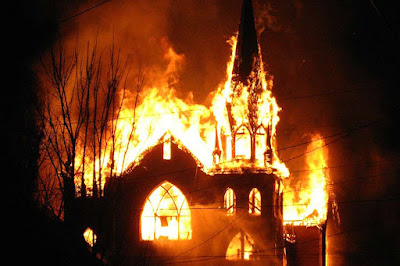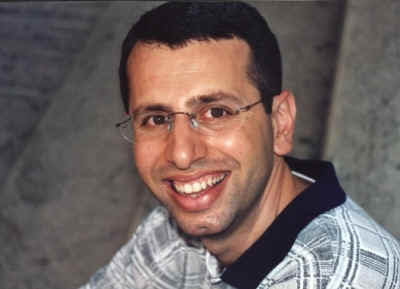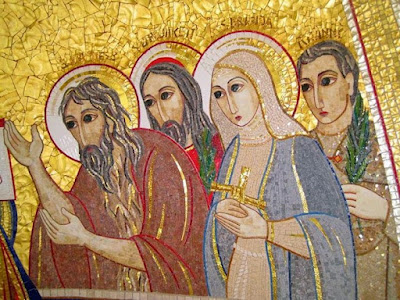I always like the fact that we celebrate Christmas in the middle of winter when the evenings are short and it is usually cold (unless you live in Florida!). Then we begin to light candles and put up colored lights and decorations to remind us of the coming of our King. It is a time of great hope and hopefully also a time that will bring joy. ‘Advent’—which simply means ‘coming’—is meant to be a time of preparing for two things: we are preparing for the coming of Jesus at Christmas, and we are also remembering that Christ will come again at the end of time.
Normally we think of Advent as preparing for the event of Christmas, but that is just part of it. Christmas and Easter are two halves of the same event, which happened over 33 years and they cannot be separated. That event changed history forever and opened for us the possibility of heaven when we die. What could be more wonderful than that and that is the hope that our faith gives us.
It is also a reminder that Jesus will come again in glory at the end of time. Each Sunday in the Creed we say, ‘He will come again to judge the living and the dead.’ We don’t know when that will be, but we believe that it will happen, because Jesus has told us so. The Lord tells us to ‘stay awake’ and not to forget him, because none of us know when we will die, but the important thing is that we do not forget the Lord, who loves us and who created us. And so each Christmas we remember that Jesus came among us, for us, to help us, to teach us about God, about the world to come and above all to die for us, so that we can join in the happiness of God when we die ourselves.
The best way that we can prepare ourselves is in the heart, by trying to give time to God and being open to what He wants to say to us. The Lord is constantly speaking to us but often we are not listening because we are too busy or distracted. People sometimes ask me if God speaks to me. Yes, God speaks to me all the time, but not through visions or voices. It's usually through other people, or through the Scriptures. It took me a while to learn how to listen, so that I might hear what God is saying to me. Advent is a good time to try and listen again and hear what the Lord has to say to us. That is why the readings are about getting ready for the one who is coming, and not being so distracted by the world around us that we forget him.
Jesus reminds us that while we get on with the ordinary things of everyday life—eating, drinking, marrying, working—we must not forget the eternal things. It is a warning to us never to become so immersed in time and the things of the world, that we forget eternity. Even though worldly affairs are important, we must not let them distract us from the reality of God; the reality that we will die, that life and death are in his hands, and that whenever He does come for us, He must find us ready.
In one sense we can never be ready enough for God. How do you prepare to meet God? And yet this is what God has created us for and we believe it will be wonderful beyond our wildest dreams, if we have made any effort to be ready.
Jesus says that when the Son of Man comes, of two people doing the same thing, one will be taken the other left. What does this mean? It means that although both people were doing the same ordinary things that we all have to do, one of them had not forgotten about God, but the other had; the one who had forgotten got left behind. If we get totally immersed in the world, or in our families, or in our work, then we have missed what it is about, because there is much more to our life than this.
Sometimes it is when someone becomes seriously ill, or dies, that we suddenly start realizing how much we have become immersed in the world. In an instant everything changes and the things of the world become insignificant. Naturally we have to get on with the day-to-day things of working and living, but we are being told to make sure that we also make time for God. Every day thousands of people die who were not expecting it; people going to work, dropping the kids off to school, or shopping. Then there is an accident, or someone has a heart attack and in the next instant they are leaving their bodies and coming before God. It happens to thousands of people every day of the week.
I also want to say something about suicide and all these terrible mass killings. I have no doubt that a big factor is that people have lost faith and lost hope. If you believe there is nothing after this life and you are struggling to cope with everything, then ‘ending it all’ might seem like a good option, because it seems to suggest bringing the pain to an end. But if you believe in God, in heaven and hell, that will give a very different perspective, because then we have something to hope for, especially when we are struggling. At times of terrible crisis, when a loved one dies, especially if it’s a young person, or people lose everything they worked hard for, having faith makes all the difference in the world. It doesn’t resolve the problem, but it does remind us that we are not here for long and what awaits us is worth persevering for. Our struggles are painful, sometimes unbearable, but they are temporary. We lose people we love, but we have the hope of being with them again. That is the difference that faith makes, and that’s also why it is so important that we do everything to pass on the faith to the next generation.
The feast of Christmas is the beginning of the greatest hope that exists: the hope that we are created for a purpose and that something wonderful awaits us when we die unless we reject it. If you can make yourself stop a couple of times during Advent and reflect on that and give thanks, that is one of the best ways that we can prepare for Christmas.
The Angel said to the shepherds: "Do not be afraid. I bring you news of great joy. Today in the town of David a Savior has been born for you; He is Christ the Lord."














